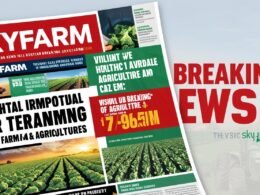REBRANDING EXTENSION THROUGH PLURALISM, DECENTRALIZATION, AND
VOLUNTEERISM: INSIGHTS FROM A SUSTAINABLE LIVELIHOODS PROJECT IN
THE EASTERN REGION OF GHANA
BY
GABRIEL ADUKPO *
AGRICULTURAL EXTENSION SPECIALIST, FREELANCE WRITER, AND BLOGGER
FORUM FOR AGRICULTURAL ADVISORY SUPPORT AND SERVICES, GHANA
(GFAASS)
TELEPHONE: +233 203 890 113 / +233 598 031 861
EMAIL: gyaduk@gmail.com
BLOG: https://skyfarmgh.com
INTRODUCTION
Public extension and advisory services grapple with solving the multi-faceted needs of
farmers and the communities in which they live. These extension workers are endowed with
technical competencies. However, the new extensionist requires other skills in facilitation,
resource mobilization, advocacy, and business to transform the agricultural sector.
Therefore, there is a need for complementary expertise to address the farmers’ needs.
THE PROBLEM
Farmers in cocoa-producing areas have experienced numerous challenges, including low
productivity, an aging farming population, poverty, and social and environmental issues. The
question is how to retain cocoa as an export crop and business for the farmers.
Cadbury, a multinational confectionery company, outsourced a sustainable livelihood
project to Voluntary Service Overseas (VSO). VSO also contacted the decentralized
Departments of Agriculture, Community Development, and Cooperatives for collaboration.
The project was from 2008 to 2017.
The Cadbury Cocoa Partnership (CCP) was designed to address the challenges with a focus
on three intervention areas: (i) Sustainable livelihoods from cocoa, (ii) Sustainable
livelihoods from other means, and (iii) Community-centered development.
METHODS
Approach—Integrated and built on sectoral strategies of participating institutions.
i. Fieldwork by a team comprising extension, volunteers, community development, and
cooperatives.
ii. Media, methods, and techniques: various groups, individuals, interviews, demonstrations,
farm visits, meetings, forums, radio, etc.
iii. Style: Institutional engagement, policy advocacy, capacity building
Funding mechanism and contributions—CCP contributed grants; VSO contributed volunteers
and expertise in sustainable livelihoods; the Department of Agriculture contributed extension
staff, offices, and pick-up vehicles. CCP paid no salaries to extension staff.
Coordination and governance—There was a program management unit, and VSO
coordinated activities at all levels.
IMPACTS
i. Thirty communities covered; Better access to extension and entrepreneurial training
ii. Three viable cooperatives: one per district, receiving enhanced Fair Trade Premium Cocoa
prices
iii. Export/import supply chain developed, enhancing traceability of cocoa beans from
farmers
CONCLUSION
The partnership left remarkable footprints, and the innovative collaborative service delivery
remained relevant and worth emulating.









